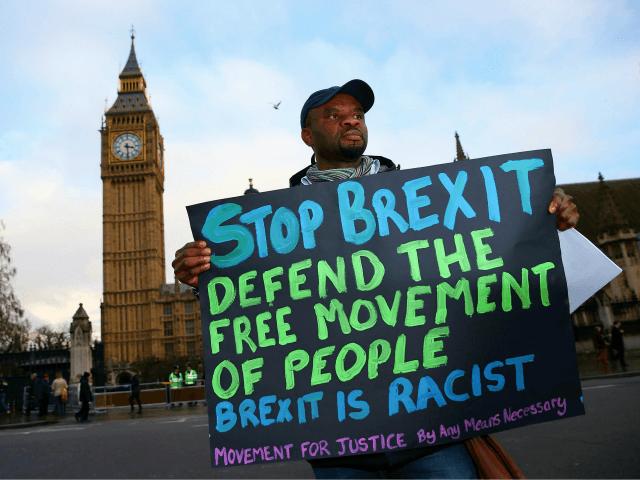In the three months leading up to the financial crisis caused by the Chinese coronavirus, the number of foreign-born workers in the United Kingdom reached a record high.
According to the Office for National Statistics (ONS), the number of foreigners working in the country climbed to a record 5.9 million — more than the entire population of Scotland — with 2.5 million from European Union nations and an additional 3.4 million non-EU workers.
This represents a 50,000 increase during the period in which the United Kingdom left the European Union.
Alp Mehmet, Chairman of Migration Watch UK, said: “These data show that the number of workers born outside the UK hit a new peak of 5.9 million in the first quarter of 2020, with records set from both EU and non-EU countries.
“We have yet to see the impact of lockdown but this is hardly the time for an extraordinary new opening up of our labour market to the whole world, as the government’s proposed system would do.”
“The clear message of these figures is for the government to rethink their proposals in light of the risk of very sharply rising unemployment. Let us be ready to prioritise the interests of British workers, as the public wants,” Mehmet concluded.
The Conservative Party pledged to reduce net migration from “the hundreds of thousands to the tens of thousands” ahead of the 2010, 2015, and 2017 general elections. Yet, such promises were scrapped after each election.
The former Chancellor of the Exchequer George Osborne admitted in 2017 that the party never supported “the pledge in private and all would be glad to see the back of [it]” and revealed that the party could have reduced non-EU based immigration but refused to.
The Conservative Party’s 2019 election manifesto pledged to introduce an Australian points-based system for immigration, which they claimed would serve to reduce the amount of migration to the country.
The government has recently revived the points-based system proposal, with MPs approving the new immigration bill on Monday, the first step in the process of becoming law. The bill seeks to end the freedom of movement for EU nationals, putting immigrants from the bloc on an equal footing with prospective migrant workers from across the world.
An impact assessment of the proposed immigration bill conducted by the Home Office found that rather than curbing migration, the points-based system could lead to greater numbers of migrants entering the country. Similar warnings have been made by Brexit leader Nigel Farage, Bow Group chairman Ben Harris-Quinney, and Migration Watch, all of who point to the changed immigration regime that could encourage even higher levels of arrivals by radically lowering several entry requirements.
Follow Kurt on Twitter at @KurtZindulka

COMMENTS
Please let us know if you're having issues with commenting.